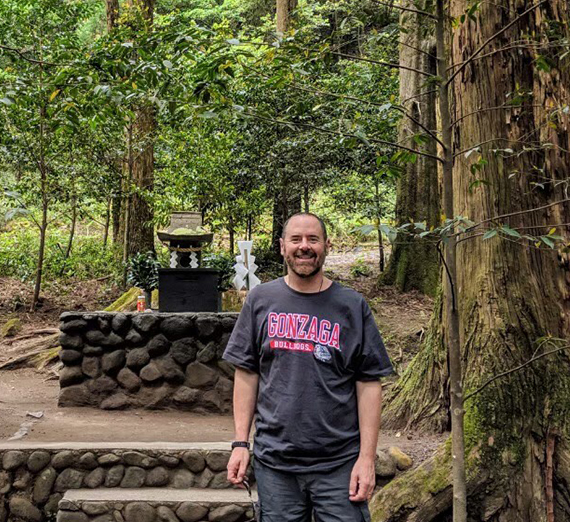The Power of Mindfulness

I wonder if anyone else feels like our current days are like being on a flight during really bad turbulence - disruption, anxiety, under threat with little feeling of control, and everyone around you, most of them strangers, in the experience alongside you.
Over two decades ago, while teaching for a Japanese college in Kagoshima, my flight was on approach to Brisbane through severe thunderstorms during the cyclone season. Sitting beside me was my colleague, Professor Kono, as we accompanied a group of our students for homestay and study experiences in Australia. After a white-knuckled touchdown, I glanced over and asked how he was doing. With Zen-like calm and the beginnings of a knowing smile, he turned and replied that he was as fine as always. I was truly surprised by his calm presence given what we had just experienced and it was a catalyst for a number of conversations over the next few weeks related to many elements of Japanese culture and philosophy. Our talks also gave me a great deal more understanding of how mindfulness practices are infused in Japanese history, life and culture, and motivated me to study the practices further.
In the two decades since, mindfulness has gained significant momentum in both American mainstream culture and through increased scholarly research, and in these seemingly surreal times, the practices are even more relevant as we try to navigate the waters of unprecedented uncertainty and disruption during this global health crisis. Fortunately, a large number of scientific studies (see suggested readings at the end) have demonstrated that mindfulness practices have significant positive effects in a number of areas. Mindfulness is more than seated, focused meditations, and I would like to offer a few helpful practices that can be easily learned and effectively integrated into your daily lives.

In the mindfulness course we teach in our M.A. Communication and Leadership program, we encourage students to engage in a variety of practices and choose those that they are most likely to continue after the course ends. Assessment feedback has shown that among the many practices covered, students benefit from regular gratitude and compassion practice and journaling. These exercises also have significant empirical support. Emmons and Stern (2013) for example, outline the value of straightforward and effective approaches in which people set aside time to bring their attention and focus to positive experiences, even seemingly small ones (e.g. a nice beverage or meal, a phone/Zoom conversation with a good friend, an energizing nap, a walk outside in the sun) and then write them down for review and reflection. Finally, the authors acknowledge the value of being intentional about communicating and reflecting thankfulness and gratitude to those around us, which can be expressed verbally, through writing, and/or thoughtful acts, even very subtle ones (like putting one’s dishes in the dishwasher instead of leaving them in the sink, or so I was told, but perhaps that topic is best explored later : ).
As we go forward in these uncertain times, I would invite you to try these practices for a week and notice how they make you and maybe even those around you feel. With 1,440 minutes in a day, the 5 minutes or so this practice takes is well worth it.
Dr. Michael Hazel, Communication and Leadership Studies, Gonzaga University
Here is some recommended reading/viewing if you would like to explore the topic further:
The Power of Habit author Charles Duhigg’s TEDx Teacher’s College Talk
Emmons, R. A., & Stern, R. (2013). Gratitude as a psychotherapeutic intervention. Journal of Clinical Psychology, 69(8), 846–855.
